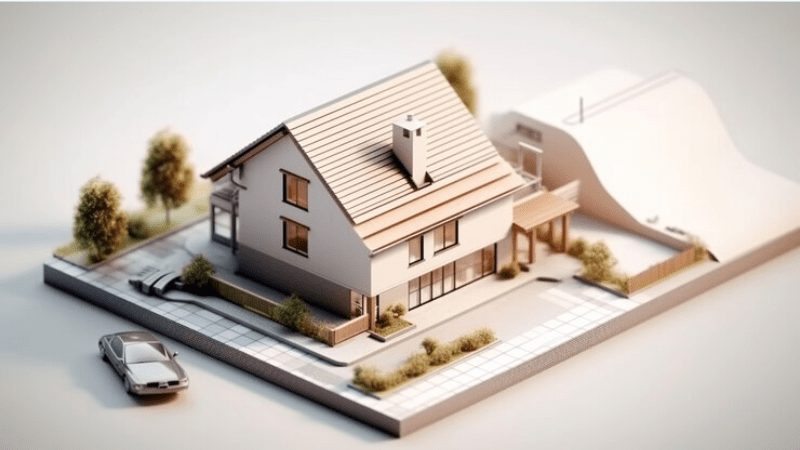Owning and managing a property that falls under the Housing and Urban Development (HUD) program comes with significant responsibility. HUD inspections ensure that properties meet certain health, safety, and habitability standards, providing tenants with safe and affordable housing. However, what happens if your property fails a HUD inspection? This guide will explore the consequences of a failed HUD inspection, steps to correct the issues, and how you can avoid future inspection failures.
At NSPIRE Experts, we understand the complexities of HUD compliance and are here to guide you through the process, offering expert advice to keep your property up to code.
What Is a HUD Inspection?
A HUD inspection is a mandatory evaluation conducted to ensure that properties meet federal housing standards. The Department of Housing and Urban Development (HUD) oversees these inspections, which can include two types: REAC (Real Estate Assessment Center) inspections and HQS (Housing Quality Standards) inspections.
- REAC inspections evaluate a property’s overall condition, focusing on safety and livability.
- HQS inspections check whether the property meets specific housing standards required for Section 8 housing programs.
These inspections focus on various factors, including the building’s structure, utilities, safety features, and overall living conditions. They are designed to ensure that residents live in a clean, safe environment.
Common Reasons for HUD Inspection Failure
Failing a HUD inspection can occur for several reasons, many of which are preventable with proper maintenance and oversight. Here are some of the most common causes of failure:
- Structural Issues
Cracks in walls, foundation problems, or roofing damage can be flagged during an inspection. These issues must be addressed promptly to pass a follow-up inspection. - Health Hazards
Mold, lead paint, and pest infestations are major health hazards that will result in an automatic failure of a HUD inspection. These problems pose significant risks to residents and are considered high-priority repairs. - HVAC System Failures
A malfunctioning heating or cooling system can cause a property to fail an inspection. Tenants must have access to adequate heating in winter and air conditioning during summer months. - Faulty Plumbing or Electrical Systems
Leaky pipes, non-working plumbing fixtures, or electrical hazards such as exposed wiring are serious issues that HUD inspectors take into account. - Safety Concerns
Broken windows, missing or non-functional smoke detectors, and unsecured handrails can all result in a HUD inspection failure. Safety hazards are a major point of concern for HUD and must be rectified immediately.
To prevent these issues, it’s essential to regularly inspect and maintain your property. Hiring a professional team, such as NSPIRE Experts, can help you identify and fix potential problems before your HUD inspection.
Immediate Consequences of Failing a HUD Inspection

When a property fails a HUD inspection, the property owner will receive a notice detailing the deficiencies found during the inspection. The results are scored, and a failing grade means immediate action is required. Property owners are given a set time frame, typically 30 days, to address the issues.
Failure to correct the issues within this time frame can result in several consequences:
- Loss of HUD approval
HUD funding and Section 8 vouchers can be revoked if the property remains non-compliant. This can lead to a loss of tenants and financial stability for property owners. - Increased scrutiny
Properties that consistently fail HUD inspections may be subject to more frequent inspections and higher scrutiny from HUD officials. - Tenant impact
Tenants living in properties that fail HUD inspections may experience disruptions in their housing arrangements. In extreme cases, they may need to be temporarily relocated until the issues are resolved.
Steps to Take After a Failed HUD Inspection
The first thing to do after failing a HUD inspection is to carefully review the report and the deficiencies identified. It is crucial to take immediate corrective action. Follow these steps to ensure you address the issues promptly:
- Create a Plan of Action
Prioritize repairs based on the severity of the issues. Address health and safety concerns first, such as fixing structural or electrical problems. - Communicate with HUD
Keep HUD officials informed about your progress in fixing the deficiencies. Transparency is key to demonstrating that you are working towards compliance. - Schedule Re-inspection
Once repairs have been made, schedule a re-inspection with HUD. Be sure to document all repairs and changes made to the property to provide evidence during the re-inspection.
At NSPIRE Experts, we can assist you in this process by helping you organize and prioritize repairs, ensuring you meet HUD’s requirements within the specified timeline.
Long-Term Consequences of Repeated HUD Inspection Failures

If a property fails multiple HUD inspections, the long-term consequences can be severe. Repeated failures can result in:
- Financial penalties
HUD can impose fines on property owners who do not comply with inspection requirements. - Loss of HUD contracts
HUD may choose to terminate agreements with property owners, eliminating Section 8 funding and drastically affecting a property’s financial viability. - Legal issues
Tenants may file lawsuits if the property fails to meet safety and health standards, leading to costly legal battles.
Maintaining HUD compliance is not only essential for your property’s financial health but also for the safety and satisfaction of your tenants. Regular maintenance and proactive repairs can prevent costly consequences down the line.
How to Avoid Failing a HUD Inspection
Preventing HUD inspection failures starts with proactive management. Here are some tips to help you avoid problems:
- Conduct regular property inspections
Don’t wait for HUD to point out issues. Perform routine inspections and address problems immediately. - Hire a HUD compliance specialist
A specialist from NSPIRE Experts can help you understand HUD’s regulations and ensure your property meets all necessary standards. - Stay informed on HUD standards
HUD regulations change over time. Staying up-to-date on these changes will help you maintain compliance and avoid penalties.
Taking these steps will not only protect your property but also ensure a safe and healthy living environment for your tenants.
Tenant Rights When a Property Fails a HUD Inspection
Tenants are often directly affected by a failed HUD inspection. If a property does not meet HUD standards, tenants have specific rights:
- Relocation assistance
In cases where the property is deemed unsafe, tenants may be relocated to temporary housing while repairs are made. - Legal recourse
Tenants may file complaints or lawsuits if they believe their rights are being violated due to unsafe living conditions.
Property owners need to communicate with tenants and keep them informed during the repair process.
Why Choose NSPIRE Experts for HUD Compliance Support?

At NSPIRE Experts, we specialize in helping property owners navigate HUD compliance. Our team of experts can assist with:
- Pre-inspection readiness
We ensure your property is ready for HUD inspections by conducting thorough evaluations and identifying potential issues before they arise. - Post-inspection support
If your property fails an inspection, we’ll help you prioritize repairs, manage timelines, and communicate with HUD to ensure compliance. - Ongoing maintenance advice
With regular maintenance plans, we can help you keep your property in top shape year-round.
Choosing NSPIRE Experts gives you peace of mind, knowing that your property is in good hands and compliant with HUD standards.
FAQs
- What happens if my property fails a HUD inspection?
You’ll receive a notice detailing the deficiencies. You’ll then have a set time frame to address the issues, usually 30 days. - Can I lose HUD funding if I fail an inspection?
Yes, failure to address the issues can result in a loss of HUD approval and Section 8 funding. - How often are HUD inspections conducted?
HUD inspections typically occur every 1 to 3 years, depending on the property’s compliance history. - Can tenants be evicted if a property fails a HUD inspection?
No, tenants cannot be evicted solely due to a failed HUD inspection, but they may be relocated if the property is deemed unsafe. - What should I do to prepare for a HUD inspection?
Regular maintenance, understanding HUD standards, and hiring a compliance specialist, like NSPIRE Experts, are essential steps.
Conclusion
A failed HUD inspection can be stressful, but with the right approach and support, you can correct the issues and maintain compliance. By working with NSPIRE Experts, you’ll have access to the knowledge and tools needed to avoid future failures and ensure your property remains a safe, healthy environment for tenants.
